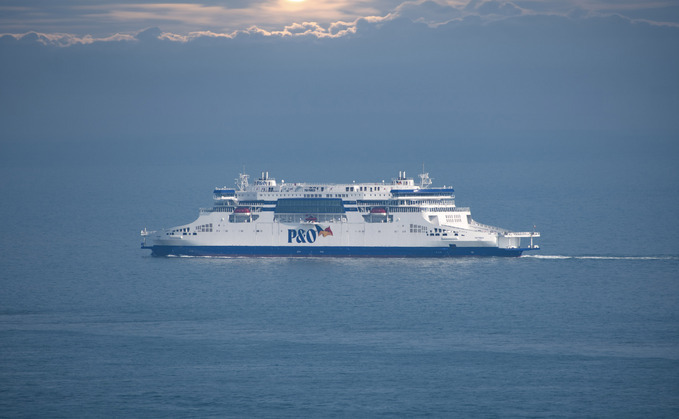Credit: iStock
Ferry giant installed digital technologies to more accurately track fuel use and ship efficiency across its fleet
P&O Ferries managed to slash almost 50,000 tonnes of CO2 from its shipping operations last year after rolling out an array of fuel efficiency technologies and initiatives, the company revealed yesterday.
The shipping firm last year launched a dedicated programme to cut fuel consumption across its fleet - dubbed the Fleet Support Centre for Fuel and Energy Efficiency - which rapidly resulted in significant emissions savings. The initiative was complemented by the introduction of a new hybrid ferry, which led to further emissions savings.
P&O Ferries said it had been able to track the resulting emissions savings using freshly installed 'SmartShip' technology and fuel meters on board each ferry, providing deeper insight into variables affecting fuel efficiency such as the weather, the operating system, and the method of operating the vessel.
Since the Fleet Support Centre's launch, the firm said it had reduced fuel consumption and related emissions on a number of its key routes and it expected to achieve further fuel reductions of five per cent in 2024.
On its Hull-Rotterdam route, P&O Ferries used the newly attained data to adjust its schedule slightly to allow vessels to keep a more consistent speed, cutting fuel use by 3.6 per cent per tonne in the process. Similarly, on the firm's Larne-Cairnryan route, it analysed data to tweak the ships' operating system in order to cut fuel consumption by seven per cent, it said.
In addition, the firm introduced a new hybrid ferry on its popular Dover-Calais route last year which uses battery packs to help optimise use of the combustion engine, which result in it using 40 per cent less fuel per crossing compared to its standard vessels.
P&O Ferries said analysis of data captured on the hybrid vessel had enabled it to find the most effective way to operate the ferry, which has helped it reduce CO2 emissions by almost 6.5 tonnes per crossing, roughly equivalent to driving an average diesel car or 23,500 miles.
A second cross-Channel hybrid ferry is set to come into service next month, replacing the firm's oldest vessels on the route, it said.
Overall, the firm said it had managed to reduce CO2 emissions from its shipping fleet by almost 50,000 tonnes last year, which comes on top of the 85,000 tonnes of CO2 it managed to reduce in 2022.
Owen Barry, director of maritime operations at P&O Ferries, explained that to continue driving down emissions from its ships "we have taken steps to digitalise our entire fleet so we have useful and reliable data on how our vessels are performing".
"We believe that our approach is leading the sector by combining the latest technology with a dedicated, experienced in-house team who work in close collaboration with our crew to get the best performance from every vessel in our fleet," he said. "We have already seen a solid reduction of fuel compared to 2022 and we expect another five per cent decrease during 2024."
Don't forget to get your entries in for this year's UK Green Business Awards ahead of the March 1st deadline.









